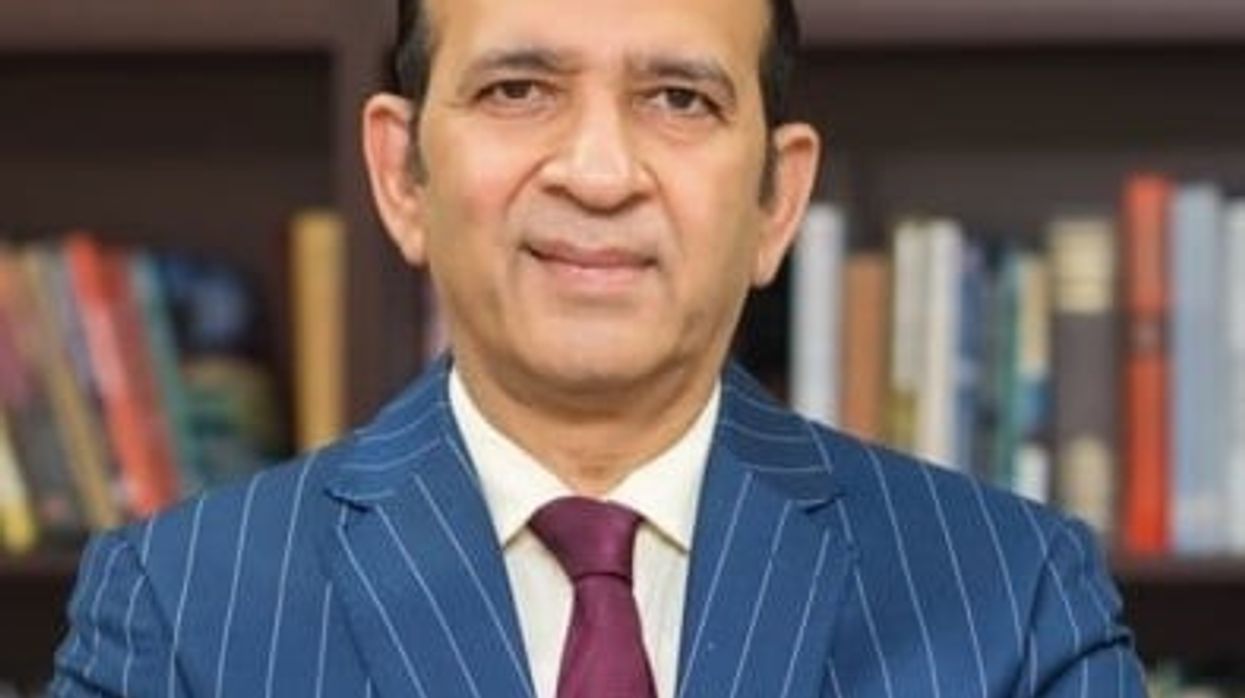The Agra Summit in 2001 collapsed primarily due to Pervez Musharraf's public airing of hawkish Kashmir views, his insufficient actions against terrorism, and his insistence on linking overall progress to developments in Kashmir, not solely due to LK Advani's firm stance.
This is what Ambassador Ajay Bisaria, who served as a key aide of Atal Bihari Vajpayee when he was the prime minister, said in his upcoming book while throwing light on various dramatic details of the historic Agra Summit.
On the second day of the Summit, Musharraf met with editors of major newspapers and TV networks for a breakfast conversation during which he "let loose" his hawkish position on Kashmir and equated terrorists with freedom fighters, Bisaria recounts.
In the book, 'Anger Management: The Troubled Diplomatic Relationship Between India and Pakistan', Bisaria says this public telecast sounded to observers like a mid-summit report on the talks, where Pakistan's hard views were being inflicted on India, while New Delhi's positions were unclear.
The former diplomat says he and Brajesh Mishra, Vajpayee's principal secretary and National Security Advisor from 1998 to 2004, watched Musharraf's televised remarks with "dismay" in the makeshift PMO in Agra.
"Mishra turned to me and said that the PM needed to be informed of this development, since he was sitting in conversation with Musharraf oblivious to everything happening outside the meeting room."
"Mishra scribbled a few lines. I had them quickly typed up, adding a couple of sentences of my own. The note basically said that a press conference by Musharraf was being telecast, where he had repeated his hardline positions, harping on the Kashmir issue, and had talked of terrorists as freedom fighters," Bisaria writes in the book being published by Rupa.
It fell upon Bisaria to walk into the room where the two leaders and the two notetakers were sitting.
"My arrival interrupted the conversation as both leaders looked up.
"Musharraf had been talking and Vajpayee was listening, apparently with great interest.
"I handed over the paper to the boss and said that there had been some important developments. After I left the room, Vajpayee looked at the paper and then read out from it to Musharraf, saying edgily that his behaviour was not helping the talks."
Bisaria says he was "playfully" accused by some colleagues of torpedoing the Agra initiative.
The former diplomat further says the narrative that emerged from the meetings in view of Pakistani leaks was that while Vajpayee and Foreign Minister Jaswant Singh were for an understanding and "OK" with Pakistan's "convoluted draft" of the Agra joint statement (linking progress in bilateral ties to forward movement on the Kashmir issue), Advani, the hawk, had vetoed it since he did not want any progress with Islamabad.
"Advani was quite aware of the slant in the media reporting, making him the villain of the piece."
"Later Pakistani writings tend to highlight the almost agreed upon draft. The reality was different," Bisaria writes.
Bisaria, who retired from foreign service in June 2022, also referred to Jaswant Singh's talks with then Pakistan Foreign Minister Abdul Sattar on the draft statement.
"Jaswant Singh walked into Vajpayee's hotel suite to show him the paper he had negotiated with his counterpart, Sattar.
Vajpayee asked his other cabinet colleagues to come to the suite. "Brajesh Mishra was already present," he writes.
"Pakistan's initial formulations linking a Kashmir settlement to other bilateral matters had been diluted, but the first operative paragraph still referred to 'progress towards settlement of (the) Jammu and Kashmir issue.'
The draft ended with calling for addressing all issues 'in an integrated manner.'
"The draft also asked for a sustained dialogue at the political level on terrorism, but made no promises of Pakistan curtailing it. While the overall formulations seemed innocent enough, the draft was sending a political message that India was letting Musharraf get away lightly on the terrorism issue.
"Several red flags went up in the room."
In the book, Bisaria says that Jaswant Singh recalled the "'collective view expressed there was that without sufficient and clear emphasis on terrorism, also accepting categorically that it must cease, how could there be any significant movement on issues that are of concern or are a priority only to Pakistan?'"
"'And none that are in the hierarchy of priorities for India? How can we abandon Shimla or Lahore? Or forget the reality of Kargil? I went back and reported failure to Sattar'," Bisaria writes quoting Singh.
"As Jaswant Singh walked out of the room, Advani sighed and said, in English, that he would now be the 'fall guy'".
Advani was the union home minister at that time.
Bisaria notes in the book that "Musharraf's overreach in terms of publicly broadcasting hawkish positions on Kashmir-- and his insistence on a formulation linking progress on all issues with progress on Kashmir -- had led to the unravelling of the summit."
He says another factor was that both countries attempted to summit a mountain with little planning or even Sherpas to help them.
"Negotiating a joint statement at the level of the prime minister and foreign minister was not the smartest choice by Pakistan," he says.
"There had been little diplomatic bargaining, no backchannel dialogue, and limited diplomatic attempts to choreograph the Summit's outcomes to bridge the vast chasm in the two positions on Kashmir and terrorism," he says.
Bisaria also recounts his conversation with Vajpayee and Brajesh Mishra months later.
"If India had gone with a bland text to declare the Summit a success and then cross-border terrorism had continued, would we not have appeared even more gullible than we did when the Summit was declared a failure?"
"Mishra agreed that would have been a worse outcome."
Bisaria adds: "Still, the invitation to Musharraf served a purpose, Vajpayee did manage to read Pakistan's loquacious dictator, and this experience would help him evolve his Pakistan policy over the next three years.
"The Summit did not succeed, but diplomacy had worked. It had worked for both countries," he says. (PTI)




